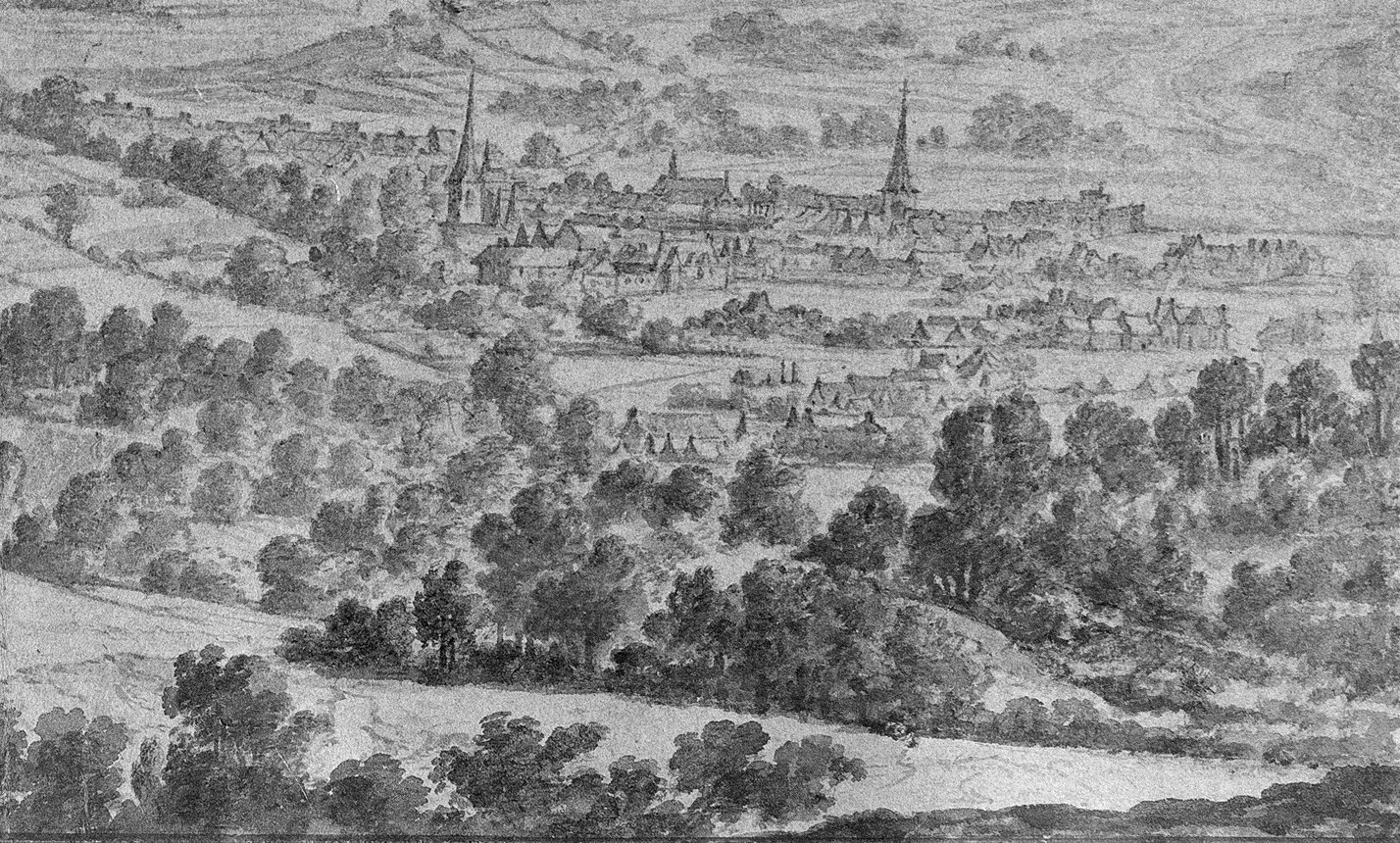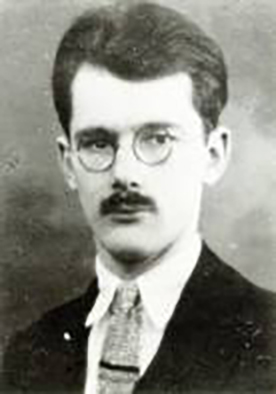This new idea was of particular relevance to Eupen-Malmedy-Sankt Vith, as this principle was not actually applied when the area was annexed to Belgium. This led to the affiliation to Belgium being questioned again and again – above all by publicists and politicians in Germany and in East Belgium itself, but also in the Belgian interior. One of the first to campaign for the border region, for the holding of a democratic and secret referendum and later for the rights of German-speaking Belgians in the period between the world wars was the Brussels lawyer and politician Marc Somerhausen (* 13 July 1899 in Ixelles; † 14 March 1992 same place).
The eldest son of a lawyer, he was of Jewish descent and a direct descendant of Dr Hartog Somerhausen, who in the 19th century had worked intensively on the history of Belgian Jews and was connected with the political milieu of Aachen between 1830 and 1850. Hartog Somerhausen also ran a bookshop in Brussels, together with Jacob Anton Mayer (1782-1857) from Aachen, the founder of the Mayersche Buchhandlung. Hartog Somerhausen was the first to publish a history of Belgium in Dutch at that time.
His son Marc attended the German School in Brussels until 1914. At the age of 17, he managed to reach the front in Flanders via the Netherlands, where he served as a war volunteer in an artillery regiment. After completing his law studies at the Free University of Brussels, Somerhausen received a scholarship to study abroad. He studied at the University of Wisconsin in Madison (USA), where he met his future wife, Anne von Stoffregen. After his return, Somerhausen settled as a lawyer in Brussels and became a member of the POB/BWP (Parti Ouvrier Belge/Belgische Werkliedenpartij/Belgian Workers Party).
In 1923, Somerhausen was sent as a delegate to the Congress of the Socialist International in Hamburg. At this congress, Léon Blum, later prime minister of France, and the Alsatian deputy Salomon Grumbach, spoke on the reparations problem after the First World War. After Somerhausen’s return from Hamburg, the then Minister of Justice, Emile Vandervelde, asked him to give a speech on the reparations question at the Socialist Party Congress in Brussels in June 1923.
On 11 November 1923, Somerhausen came to Eupen for the first time on behalf of the party to give a speech. On this occasion, he made his first political and eventually friendly contacts with Karl Weiss, the founder of the socialist movement in Eupen, which were to last a lifetime. As a result of this much-publicised meeting with Karl Weiss, the then Socialist Minister of Justice Emil Vandervelde appointed Somerhausen to his cabinet and suggested him as a candidate for the parliamentary elections in the constituency of Verviers.
At the parliamentary elections of 5 April 1925, Somerhausen was elected deputy in the Verviers district for the Socialist Party. He received a quarter of the votes from East Belgium, whose inhabitants were allowed to vote in Belgian elections for the first time. During the election campaign, Somerhausen had campaigned for the right to self-determination and holding a free and secret referendum on the territory’s nationality.
On 15 March 1927, during a widely discussed speech, Somerhausen strongly advocated for the rights of the ‘Neobelgians’ (Neubelgier. He called for a rerun of the ‘public expression of opinion’ of 1920, listing and citing the various political events that had taken place before, during, and after the incorporation of the three cantons into Belgium. Somerhausen’s interpellation of 15 March 1927 still represents a turning point in Belgium’s post-war history.
After the Nazis came to power in 1933, it was clear to most democratically-minded inhabitants of the new Belgian territories that a return to Germany was no longer desirable. From then on, Somerhausen was committed to the rights of German speakers in the Belgian state, for example in the judiciary, and campaigned for broad bilingualism throughout the territory.
At the outbreak of war in 1940, Somerhausen, who had again volunteered for military service, was drafted into air defence. Shortly afterwards, the Germans took him prisoner, and he Somerhausen did not regain his freedom until 1945.
During his imprisonment, he was denounced to the Secret State Police (Gestapo). He was accused of helping German Social Democrats who had gone into hiding after 1933 to smuggle illegal propaganda material from Belgium to Germany. Somerhausen was interrogated but not subjected to further prosecution.
After his return in 1945, Somerhausen did temporary service with the military mission in Berlin. After the 1946 elections, he once again entered the Chamber, now as a deputy for the Brussels constituency. He held this office for one year, as he was appointed a member of the newly established Council of State in 1947. From 1954 until his retirement in 1969, Somerhausen was professor of administrative law at the Free University of Brussels. In 1966, he was awarded the high honour of First President of the Council of State.
Sources:
Heinz Warny, Begegnung mit Karl Weiss in Eupen ließ in Brüssel aufhorchen, in Grenz-Echo, 27/09/2007.
Heinz Warny, Vor 80 Jahren erzwang Marc Somerhausen die erste große Eupen-Malmedy-Debatte der Kammer, in Grenz-Echo, 27/09/2007.
Philippe Beck, Umstrittenes Grenzland. Selbst- und Fremdbilder bei Josef Ponten und Peter Schmitz, 1918-1940, Brüssel, P.I.E. Peter Lang, 2013 (Comparatism & Society vol. 21), pp. 117-120.
Geneviève Duchenne, Esquisses d’une Europe nouvelle. L’européisme dans la Belgique de l’entre-deux-guerres (1919-1939), Bruxelles, Peter Lang, 2008 (= Euroclio vol. 40), pp. 150, 215, 512, 556, 559, 565.

